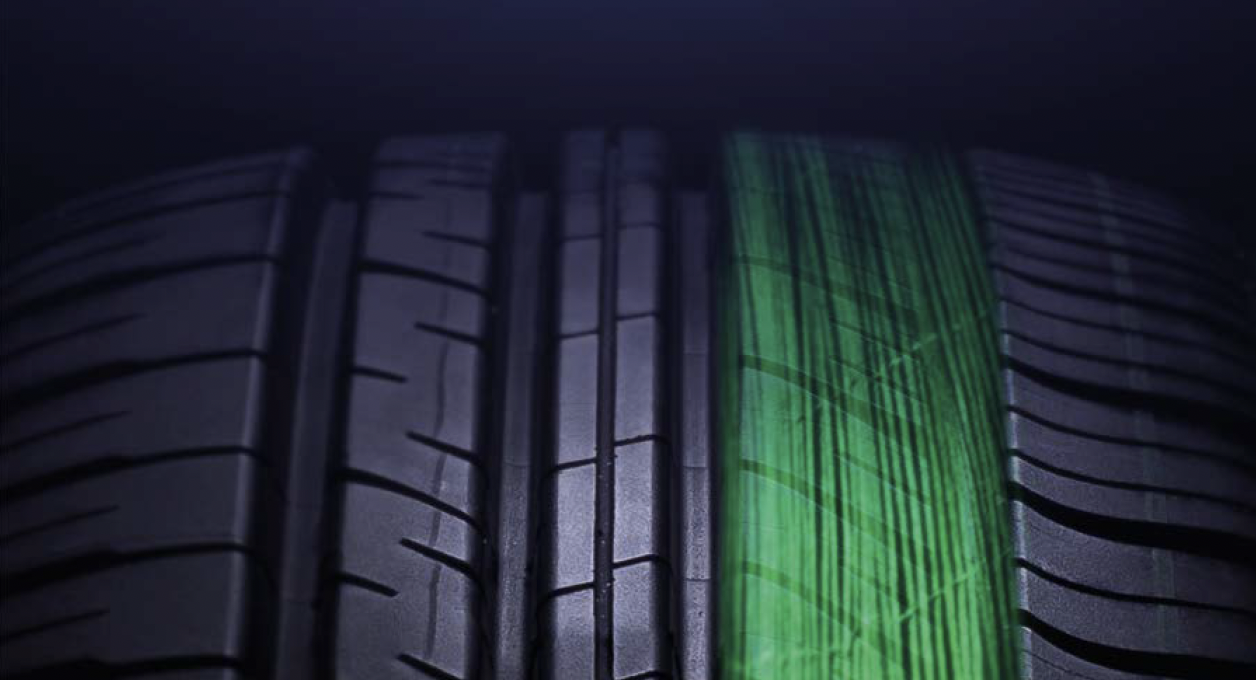According to the latest projections, global population could grow to around 8.5 billion in 2030 and 9.7 billion in 2050. Sustaining the current lifestyles of 9.7 billion people based on current production practices would require the natural resources of almost three planets Earth.
There is no way around it – we will have to rethink how we make better use of our resources – including materials ending up as un-recycled waste. For example, Polyethylene Terephthalate (PET) is the third most used polymer globally and serves in a wide range of multi-layer composite products such as tyres, textiles and packaging. Most of the PET waste is currently landfilled or burnt – but it could also be retrieved to create a sustainable industry.
For the tyre industry, PET is one of the main reinforcing textile materials. And for the textile material to get the necessary bonding to rubber, the industry has been using Resorcinol-Formaldehyde-Latex (RFL)-based adhesive systems since the late 1930s, even though health-related concerns persist.
Kordsa, a subsidiary of Sabancı Holding and a global leader on tyre reinforcement technologies, is determined to tackle both challenges and to reduce its carbon footprint by implementing new generation technologies that allow for more sustainable transportation solutions. Several years of research efforts to contribute to its “tyres with more sustainable materials” target, finally culminate in the development of two new technologies.
A double effort
First, Kordsa and Continental – who have been collaborating for many years on tyre textile reinforcements – joined forces in 2017 to replace resorcinol and formaldehyde with more environmentally friendly alternatives to reinforcing rubber with technical fibers. These fibers are needed to provide satisfactory mechanical properties that are crucial for the performance of many heavy-duty mechanical rubber goods, and especially tyres.
Developers from both companies exchanged the know-how they had acquired, discussed options, created concepts to overcome prior limitations and tested various technologies. This partnership was also complementary thanks to both sides sharing experience in tyre cord production, thus enhancing speed and efficiency. The high quality of collaboration eventually paid off with a novel RF-free formulation that yielded similar results to the RFL standard not only in laboratory tests, but also in tyre tests – the COKOON adhesive technology. COKOON does not compromise on safety or performance criteria. First series tyres featuring COKOON technology have already been on the road and Continental is expected to expand the use of COKOON technology in their tyre production in the near future.
Second, Kordsa has created a new tyre-reinforcing high-tenacity fiber from waste PET bottles, expanding its sustainable product range to meet an evolving demand by tyre manufacturers – the majority of whom have set themselves the target to manufacture “tyres made of 100% sustainable materials by 2050”.
A part of the project focuses on manufacturing PET tyre cord fabric using chemically recycled polyester chips from waste plastic bottles. Compared to other recycling technologies, recycling from waste plastic bottles is at higher technology readiness level and will make it possible to produce this main tyre reinforcement component without using virgin PET.
Over the course of this recycling innovation, Kordsa has investigated different polyester recycling technologies, and has become a partner, along with Michelin, in the European Commission’s Horizon Europe “WhiteCycle” project which focuses on the recycling of complex PET by enzymatic reaction technology. As part of this EUR 7.1 million budgeted project, Kordsa is giving high priority to projects targeting circularity. We are committed to enhancing the use of complex PET waste to produce high performance sustainable products.

Adapting to value chain realities
The fact that COKOON, a promising alternative to RFL adhesive technology, has been developed does not mean that it will be easy to replace an almost century-old standard, which was an approved, long-tested system with which every tyre manufacturer seemed to be satisfied.
Currently, several textile suppliers provide only a single adhesion technology (i.e. RFL) to tyre manufacturers. However, in the case of new RF-free technologies – and from a tyre producers’ perspective – the approval process could become much more complex and costlier since numerous textile converters are working on their own alternative adhesion technologies. There is the risk that approval processes and the added IP-related complexities for each new adhesion technology could make tyre manufacturers reluctant to try those new technologies.
In spite of these hurdles, it is obvious that the industry needs to seek sustainable and responsible solutions to meet future needs. To overcome the bottlenecks which stand in the way of viable business solutions – and to lay the foundation for a new industry-wide standard parallel to that of RFL – Kordsa and Continental have decided to make the COKOON technology available for everyone through free licensing. This move opens up this innovation project to all parties interested in contributing to a greener world.
As of today, more than 40 textile converters and tyre manufacturers have tested the material and 10 companies joined the free licensing pool. We believe that the more stakeholders join in, the higher the benefit will be for all parties and that COKOON can help transform the industry for the sake of a sustainable future.
Regarding PET recycling technologies, there is still work left to do: A current state of the art is not fully developed and raw material supply is not yet secure. Currently, the only available resource is bottle waste, but bottle producers increasingly seek to close the bottle-to-bottle loop. As an alternative resource, we are now looking into blended textile waste and PET from end-of-life-time tyres (ELT).
In short, the success of innovation also depends on adapting to the value chain as a whole and navigating dynamics of both demand for new solutions and competition for raw materials.

